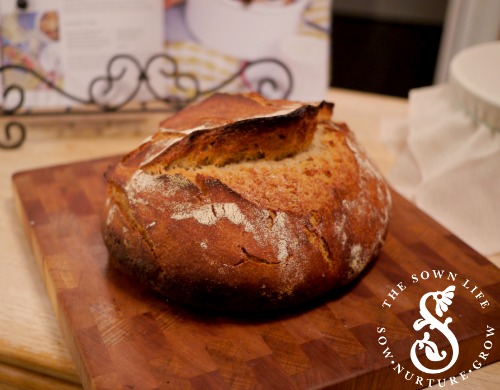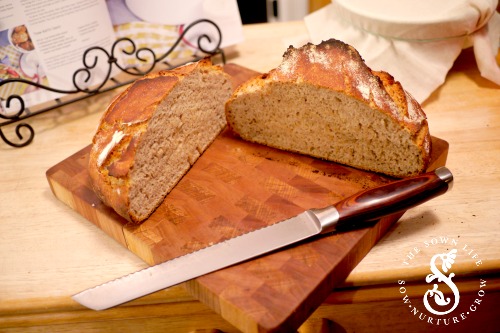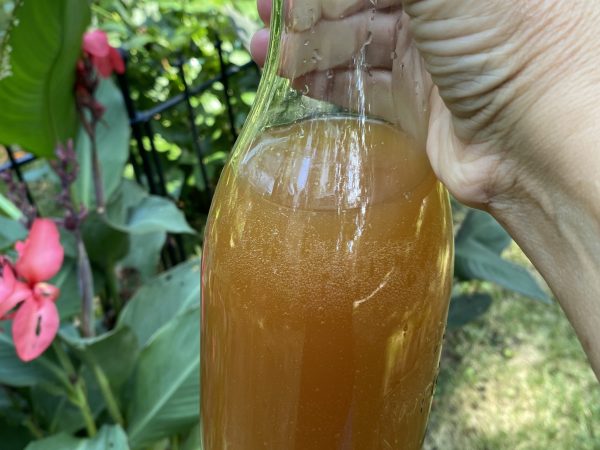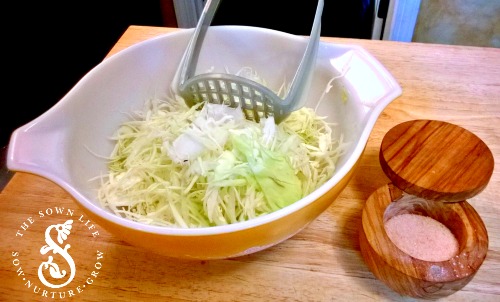Sourdough Starter
I know for many of you that making your own sourdough bread starter is very daunting. I don’t blame you at all, it can be finicky because you are dealing with a live culture. It’s pretty cool when you think about it. I’ve been experimenting and I think I’ve come up with a good step by step guide for you. Making your own sourdough is really worth the effort. In fact, the same starter, properly cared for, can live for years and it just gets better and better as it increases in potency. By trial and error, I’ve come to the conclusion that rye flour works best for the starter. I have used wheat and it lost its potency in about two weeks and my bread became too dense. For sourdough, you want potent but also a light texture. You will need: Fresh milled organic rye seed Cold water Large bowl Cheesecloth Rubber Band Directions: I started here with 1 cup of fresh milled organic rye seed. If you don’t have your own mill you can purchase rye flour. I would recommend storing the flour in the freezer as whole grain flours can go rancid in about three days. Just make sure to let the flour sit at room temperature before using it to feed the starter. 2. Add 1 cup of cold filtered water to make a soupy consistency. The bowl is then covered with a layer of cheesecloth so the starter can breathe. Remember, we are creating a […]




